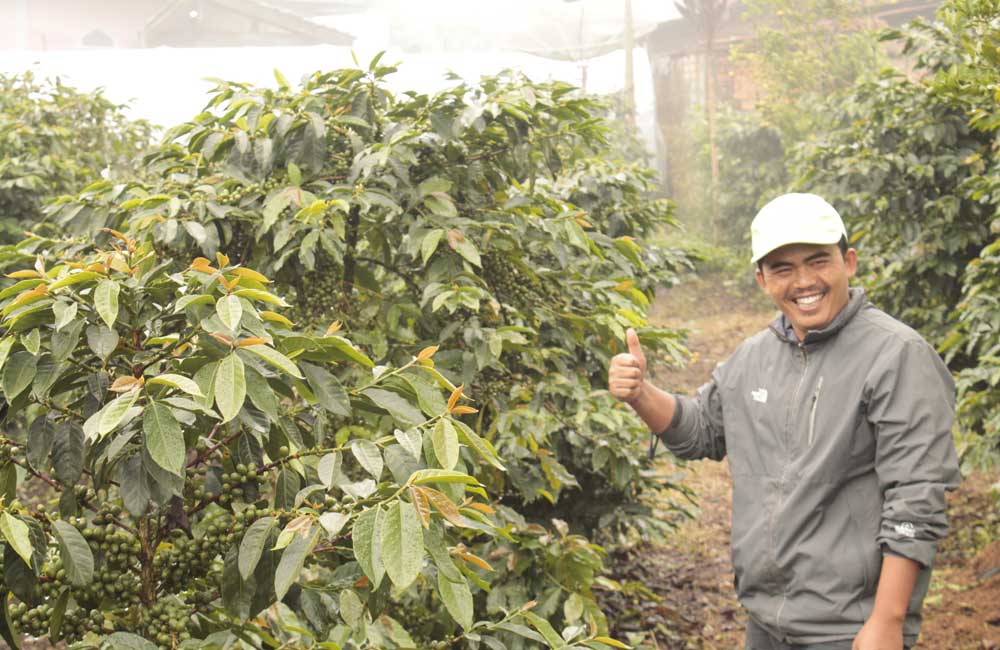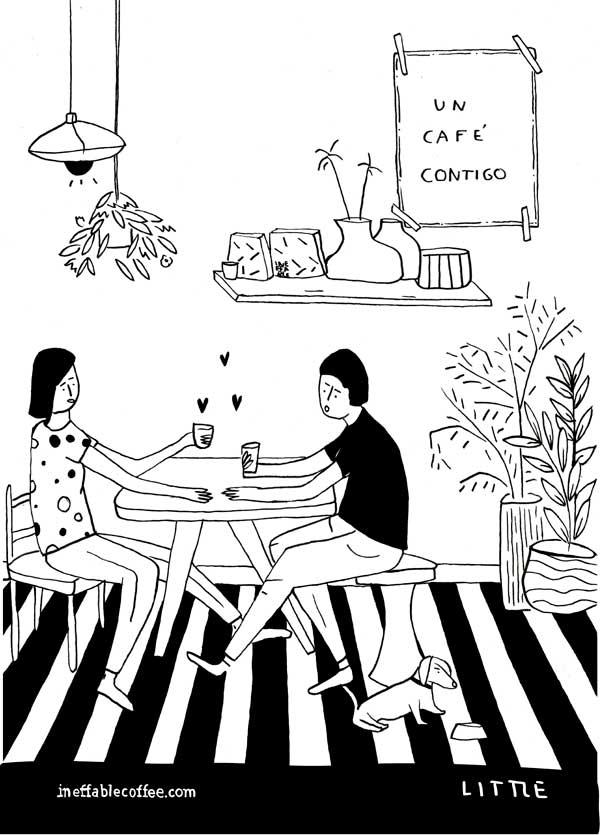Filter & Espresso
Custard apple, almond, tamarind
Sumatra | |
1,400 – 1,700m. | |
Andung Sari, Sigarar Utang | |
Anaerobic Honey 168h | |
Smallholders | |
Harvest 2022 |
Kerinci is the name of an active volcano on the island of Sumatra, Indonesia. This coffee has been grown at the foot of the volcano by small producers grouped in the Koerintji Barokah Bersama cooperative.
The Kerinci volcano is part of the Pacific Ring of Fire, a horseshoe arc around the Pacific of more than 40,000 km and with more than 452 volcanoes. It is an area known for its constant eruptions and tectonic movements.
The periodic eruptions of the volcano have made the lands around it very fertile. The volcano is also the highest mountain on the island of Sumatra, at 3,805 meters. This coffee has not been grown at that high altitude, which would not benefit it, but at between 1,400 and 1,700 meters.
The fertility of the volcanic terroir, together with the altitude, abundant rainfall and a favorable climate makes it a suitable area for specialty coffee cultivation.
Coffee Cultivation on the Island of Sumatra
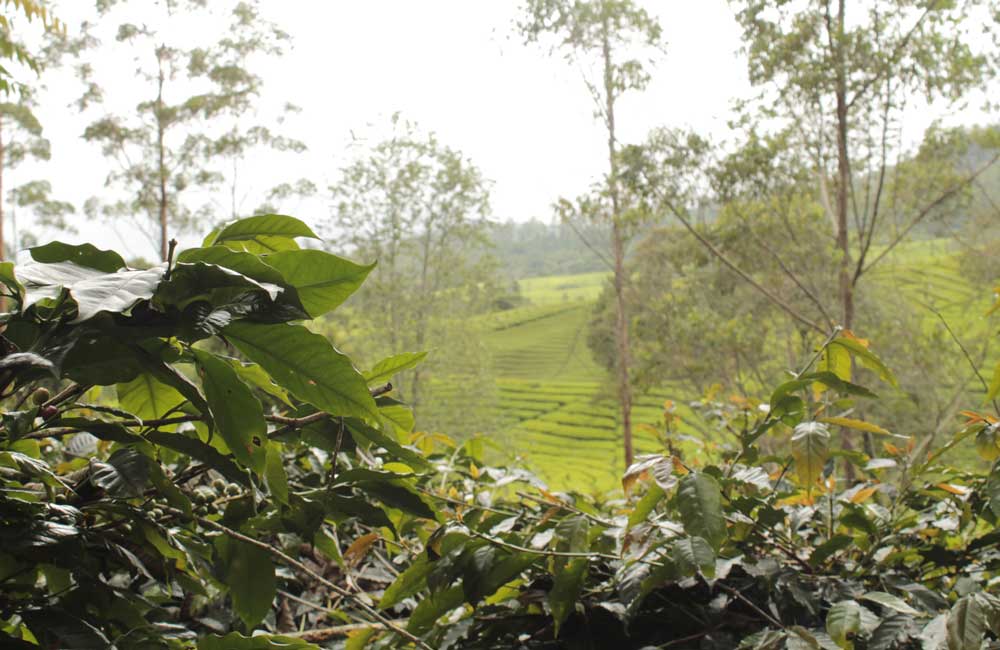
Most farms on the island of Sumatra are small, between 0.5 and 2.5 hectares, and are family-run. Coffee is often a cash crop for many small coffee farmers, but not their only crop. Fruit trees and vegetables are often planted among coffee trees.
These crops make up a substantial part of their diet, but also help slow down the ripening of the cherries, which positively impacts the seeds.
Coffee farming in Sumatra, and Indonesia in general, is experiencing a resurgence. Until now, coffee farmers used to plant mainly the robusta variety, because it is more resistant and cheaper. In addition, as small producers they had to sell their cherries or green coffee seeds to large companies with little profit, which kept them in a vicious cycle harvest after harvest not being able to invest in improving their coffees.
In recent years, and thanks to the rise of specialty coffee, coffee farmers, supported by public and private initiatives, have started working together in cooperatives. This allows them to negotiate better prices, invest in improving their coffees and have a more dignified quality of life.
The Koerintji Barokah Bersama Cooperative
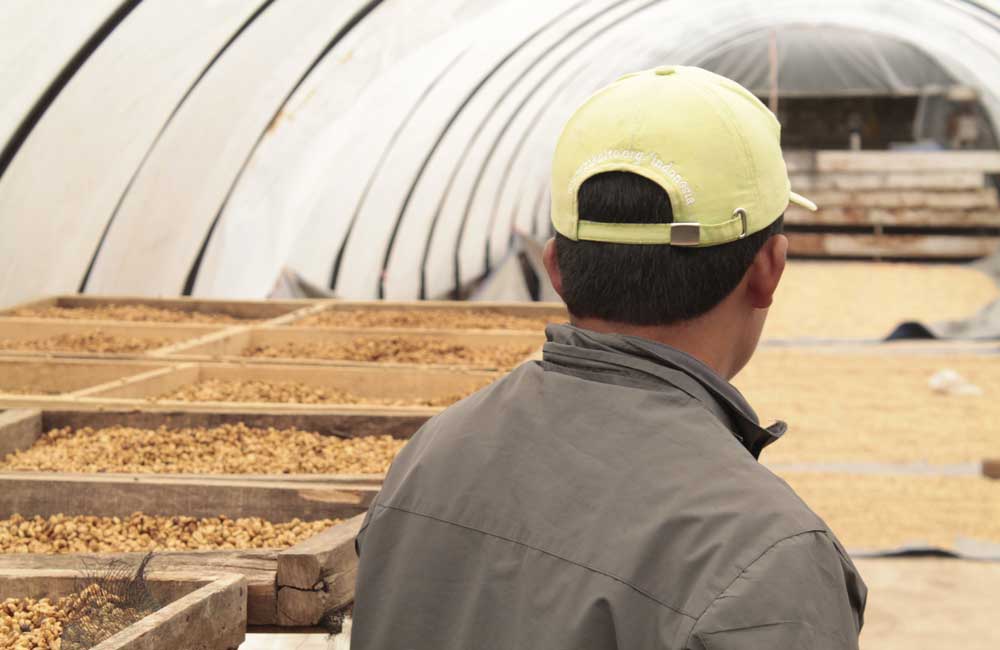
The Koerintji Barokah Bersama cooperative was founded in 2017 and is managed by Triyono, who leads members in processing and roasting their own coffees.
The cooperative has nine cherry collection points where coffee farmers bring their crops. These collection points function as small washing stations. Once the coffees are processed, they are taken to a central warehouse where they are prepared for sale and export.
Coffee farmers receive a fair payment for the crops they deliver depending on the variety and condition. But in addition, the annual benefits of the cooperative are reinvested in improving the facilities, support coffee farmers and annual bonuses.
The cooperative, supervised by Triyono, also has an agronomist who helps and supports both coffee farmers and the collection and processing points.
Kerinci Anaerobic Processing 168h
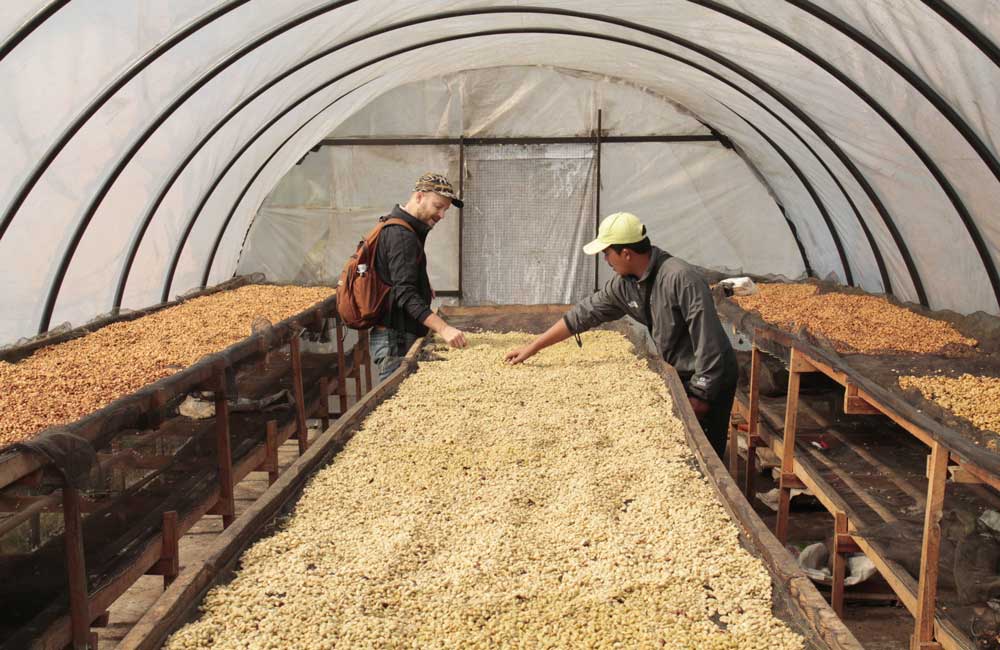
This is a very special coffee given its long anaerobic fermentation and its honey processing that leaves tasting notes of custard apple, almond and tamarind.
During the harvest season the coffee is picked by hand. Usually, most of the work is done by the family. The coffee is picked by hand to ensure that cherries are at its optimum point of ripeness.
After harvesting, the coffee is delivered to a collection and processing center of the cooperative.
To produce this anaerobic Honey batch, the coffee is first floated and sorted by density to differentiate cherries in prime condition from those that are green or have defects. It is then placed on raised beds where workers remove underripe, overripe and damaged cherries.
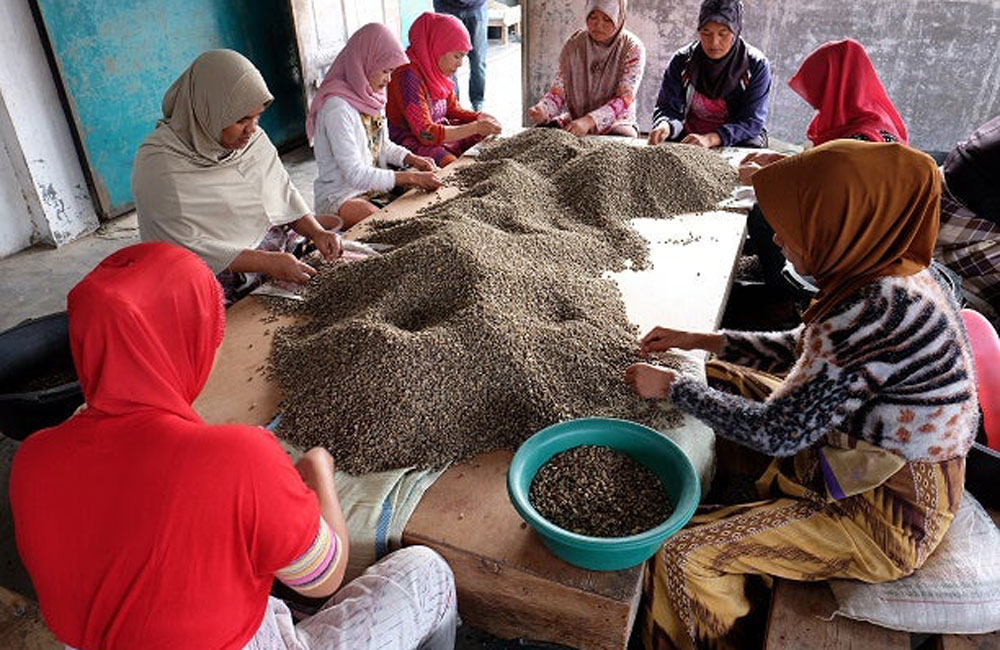
The ripe cherry is collected again and sealed in 20 kg hermetic plastic bags that are stored in a cool and dry place (with temperatures between 18 and 22 degrees Celsius) for 7 days.
After 7 days, the cherry is pulped, leaving the mucilage, and then placed back on raised beds to dry. The beds are located under domes that protect the parchment from rain or strong sunlight. The seeds are left to dry for about 20 to 23 days. Once dry, the green coffee is cleaned, graded by hand, and ready for export.

